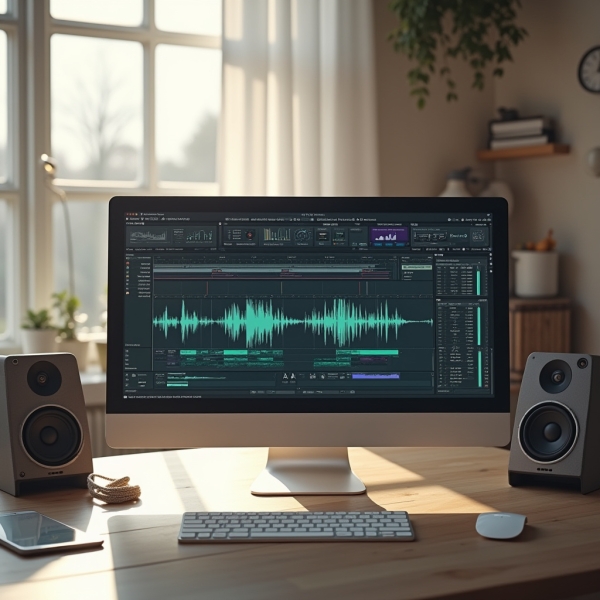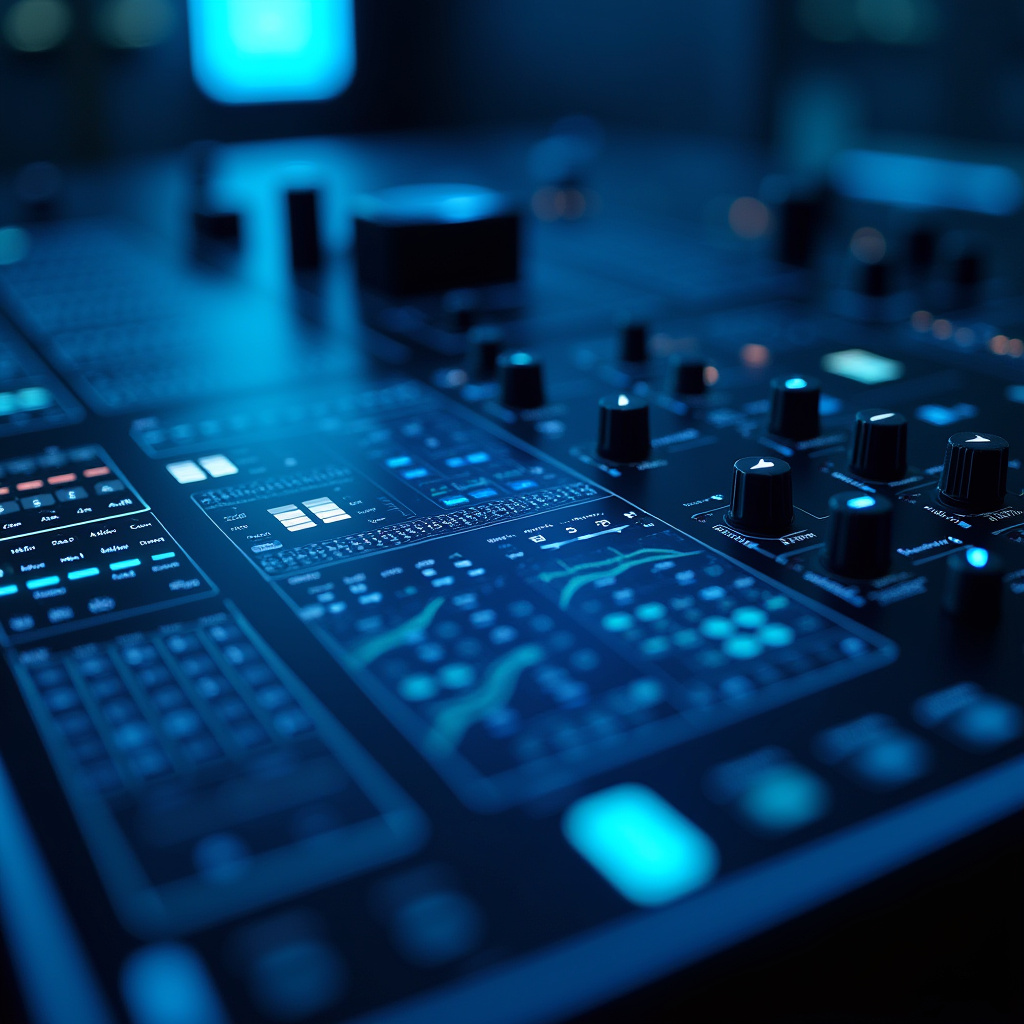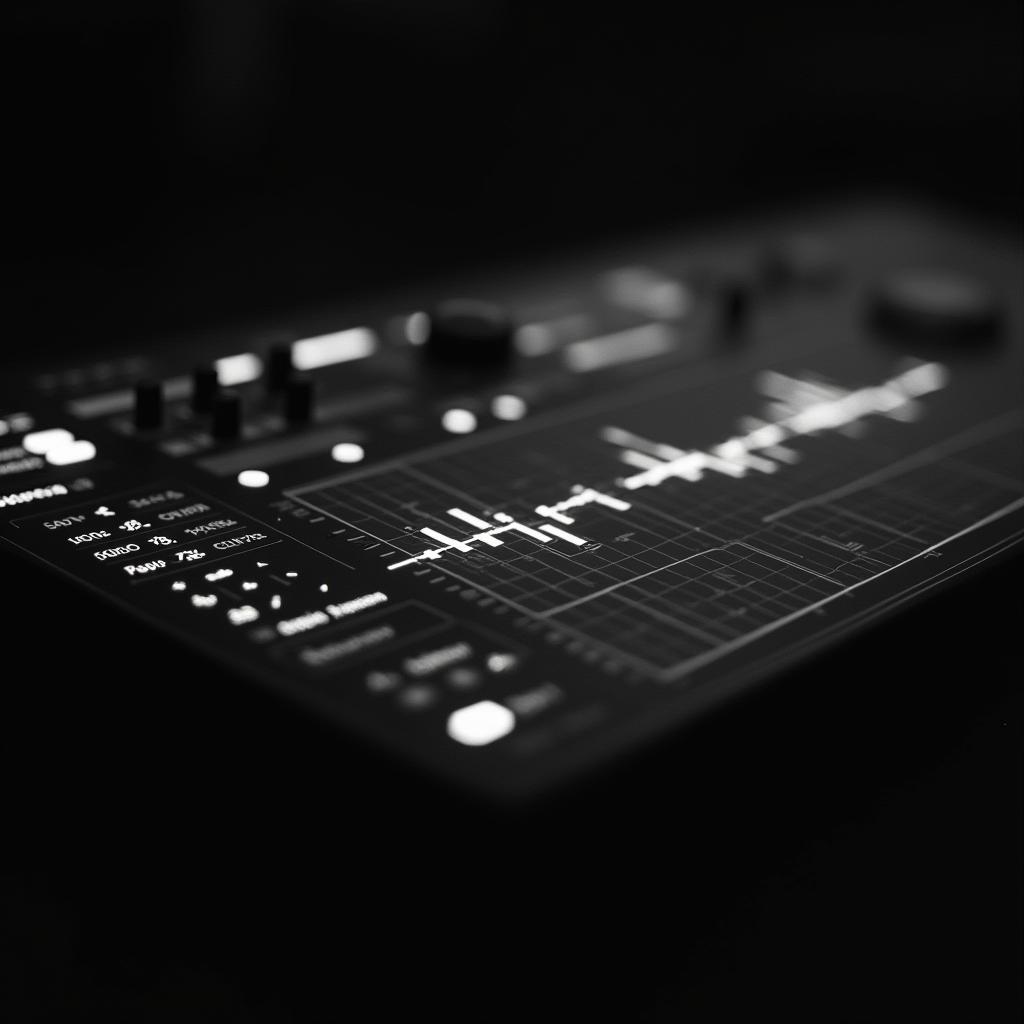How to Utilize A.I.-Based Software When Making Music
Artificial Intelligence (A.I.) is revolutionizing the music industry in unprecedented ways. From composition and sound design to mixing and mastering, A.I.-powered tools are enhancing creativity and efficiency for musicians, producers, and sound engineers. Whether you're an aspiring artist or an experienced producer, integrating A.I. into your workflow can significantly elevate your music-making process. Here’s how you can leverage A.I.-based software to enhance your musical journey.
1. A.I.-Powered Composition and Songwriting
Creating melodies, chord progressions, and even lyrics has never been easier with A.I.-driven tools. Software such as AIVA, Amper Music, and OpenAI’s MuseNet can generate unique compositions based on specific styles and moods. These tools help:
- Provide inspiration when experiencing writer’s block.
- Generate chord progressions and harmonies.
- Create complete musical pieces tailored to different genres.
For lyricists, A.I.-powered lyric generators like LyricStudio and Jarvis (now Jasper) can suggest words, rhymes, and themes, enhancing the creative writing process.
2. A.I. for Sound Design and Synthesis
If you’re looking to create unique sounds, A.I.-powered synthesizers and sound design tools can be invaluable. Google’s Magenta Studio, Orb Producer Suite, and LANDR Samples use machine learning to analyze and generate sounds that fit specific tracks. Some benefits include:
- Automating the synthesis of new sounds.
- Generating drum patterns and loops tailored to a track’s feel.
- Suggesting unique textures and timbres for sound design.
A.I.-enhanced synthesizers, like Playbeat and Algonaut Atlas, even use deep learning to analyze your sample library and create custom loops based on your style.
3. A.I. for Mixing and Mastering
Mixing and mastering are crucial steps in music production, and A.I. is making them more accessible to all musicians. Software such as LANDR, iZotope Ozone, and AI Mastering allows producers to:
- Instantly analyze a mix and apply professional-grade enhancements.
- Suggest EQ adjustments, reverb, and compression settings.
- Automate mastering based on genre-specific parameters.
These tools not only speed up the process but also make high-quality mastering accessible to independent artists who may not have access to professional studios.
4. A.I. for Music Arrangement and Production Assistance
A well-structured song arrangement can make or break a track. A.I. tools like Captain Plugins and Scaler 2 assist in:
- Suggesting key changes, chords, and basslines that complement existing compositions.
- Automating transitions between sections for a more dynamic arrangement.
- Generating MIDI patterns that fit seamlessly with the track’s style.
These tools help streamline the production process, ensuring smooth transitions and cohesive song structures.
5. A.I. for Vocal Processing and Enhancement
A.I. is also transforming vocal processing. From pitch correction to harmonization, tools like Antares Auto-Tune, Waves Vocal Bender, and Melodyne offer features such as:
- Real-time pitch correction and tuning.
- Harmonization and voice synthesis to create backing vocals.
- AI-based de-essing and noise reduction for cleaner vocal tracks.
For artists experimenting with vocal transformation, software like Synthesizer V and Voicify allows for A.I.-generated vocal performances that can mimic real singers.
6. A.I. for Music Distribution and Marketing
Beyond music creation, A.I. can also help artists distribute and market their music. Platforms like Spotify’s Discovery Mode, LANDR Promote, and Chartmetric use A.I. to:
- Optimize metadata and suggest keywords for better discoverability.
- Analyze streaming data to recommend marketing strategies.
- Automate social media campaigns based on listener demographics.
By leveraging A.I.-powered analytics, musicians can refine their promotional strategies and reach the right audience more effectively.
7. A.I. for Sampling and Remixing
Remixing and sampling are essential elements of modern music production. A.I.-driven tools like Stem Separation (e.g., Spleeter, RX 10 Music Rebalance) allow producers to:
- Isolate vocals, bass, drums, and other elements from tracks.
- Automatically detect key and BPM for seamless remixing.
- Suggest new arrangements based on sampled elements.
These technologies enable artists to create unique remixes and reimagine existing songs with ease.
8. Ethical Considerations and the Future of A.I. in Music
While A.I. presents exciting opportunities, it also raises ethical concerns. Issues such as copyright infringement, originality, and the potential replacement of human musicians are hot topics in the industry. However, A.I. should be seen as a tool for augmentation rather than replacement. Musicians who embrace A.I. can push creative boundaries while maintaining artistic integrity.
Conclusion
A.I. is not here to replace musicians but to empower them. By integrating A.I.-based software into your workflow, you can enhance creativity, streamline production, and optimize distribution. Whether you're using A.I. for composition, mixing, mastering, or marketing, these tools offer limitless possibilities for the modern musician. The key is to experiment, find what works best for your style, and use A.I. as a collaborator rather than a crutch. The future of music is a fusion of human creativity and artificial intelligence—so why not take advantage of it today?





